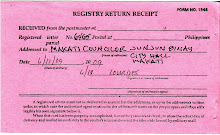Health on the Go
http://www.cdc.gov/Features/HealthOnTheGo/
Learn how to stay healthy even when you're on the go. These simple health tips may help you make better choices even when you're tired, stressed, or in a hurry.
With a busy schedule, you may be less likely to take the time to make good health choices. Don't know how to stay healthy while on the go? These simple health tips may help you make better choices even when you're tired, stressed, or in a hurry.
Healthy Snacking
Pack and keep healthy snacks with you. Choose foods and beverages that are low in fats, calories, sodium, and sugar. Great examples are apples, bananas, low-fat granola, low-fat cheese, and nuts. It's also important to drink plenty of water to stay hydrated.
Nutrition for everyone
http://www.cdc.gov/nutrition/everyone/index.html
Healthy Eating for a Healthy Weight
http://www.cdc.gov/healthyweight/healthy_eating/
Got Water? Keep it available and keep it clean!
http://www.cdc.gov/Features/GotWater/
The human body needs water continuously. Be sure to keep hydrated.
Don't wait until you feel thirsty to drink water; the human body needs fluids on a regular basis. An adult should drink about two liters of water each day (that's about eight, 8-ounce glasses) to stay hydrated. In extreme temperatures, two to four 8-ounce glasses of fluid an hour will help keep you hydrated and decrease the risks for heat exhaustion or heat stroke.
Dehydration occurs when the body loses water faster than it should. During times of extreme heat or extreme exertion, be alert for signs of dehydration. Symptoms include a decrease in urination, a dry mouth and throat, and feeling dizzy when standing up. Young children and babies show similar symptoms if dehydrated; additionally, a dehydrated child may cry without tears and exhibit unusual drowsiness or fussiness.
Outdoor Activities and Thirst
Sometimes it's easy to underestimate the weather and think that you won't become too hot during a walk to the bus stop or a jog around the track. But during most summer days, you need a bottle of water on the sidelines when you and your family or friends are running around playing soccer, chasing Frisbees, or mowing the lawn. Whatever your outdoor activity, have water on hand to satisfy your thirst and decrease the chances of dehydration.
Wondering how to quench your thirst? Drink water! Avoid beverages with alcohol and drinks high in sugar since they don't fight dehydration and can make symptoms worse. Stay away from caffeinated and carbonated beverages when you feel thirsty. Sports drinks may be appropriate when you're physically active but remember that they have high levels of sugar, salt, and potassium.
Drinking Water and Camping and Hiking Trips
If you're enjoying the great outdoors on a hiking or camping trip, you have options: bring drinking water with you or be prepared to purify your own water from a lake, stream, or river. If you plan on drinking water from a natural source, be sure to boil or filter and chemically treat the water (for general guidelines, see "Treatment of Drinking Water"). Even though fresh water from a stream or river looks clean, it may contain germs that can make you sick. If you're planning a day trip hiking through the woods, bring drinking water with you. It's a great way to keep hydrated and is easy to carry. Be sure to have enough drinking water on hand to keep everyone in your group hydrated.
Safe Water and Traveling Outside the U.S.
To help you and your fellow travelers avoid diarrhea—the most common travel-related illness, and other food- and water-related problems, purchase commercially bottled water to drink and to brush and rinse teeth. In areas where chlorinated tap water is not available or where hygiene and sanitation are poor, drink beverages made with boiled water, such as tea and coffee, or unopened bottled or canned beverages. Remember that water on the outside of cans or bottles may also be contaminated. Therefore, dry wet cans or bottles before you open them and wipe clean surfaces which your mouth will directly touch.
If you're traveling with infants and young children, prepare formulas, baby foods, and ice cubes with clean, commercially bottled water. Pay attention to your child's mood: irritability is normal when changing time zones but also may signal illness. Regularly wash toys, pacifiers, and other objects your children play with that may touch floors or surfaces in public areas. Frequent hand washing and use of alcohol-based sanitizer can help promote health and safety while traveling with infants and young children.
Keep Hydrated; Keep Safe
Playing ball, hiking a trail, or flying to a distant land, you'll need water to drink. Wherever you get your drinking water (a private well, a public water system, or a stream next to your camp site), it's important to know that it's clean, because clean means free of germs that can cause water-related illnesses. Take the necessary precautions before you drink: check with your water supplier and make sure it is follows the state standards concerning clean water, drink commercially bottled water if reliable safe tap water is unavailable, and purify water from a lake, river, or stream.
More Information
* BAM! Keeping Your CoolExternal Web Site Icon
* Diarrhea and Dehydration, International Travel with Infants and Young Children (2010 Yellow Book)
* Extreme Heat
* Extreme Heat: A Prevention Guide to Promote Your Personal Health and Safety
* Healthy Drinking Water
* Treatment of Water to Make It Safe for Drinking
Subscribe to:
Post Comments (Atom)
image of registry return receipt of letter addressed to Makati councilor J. J. Binay


No comments:
Post a Comment